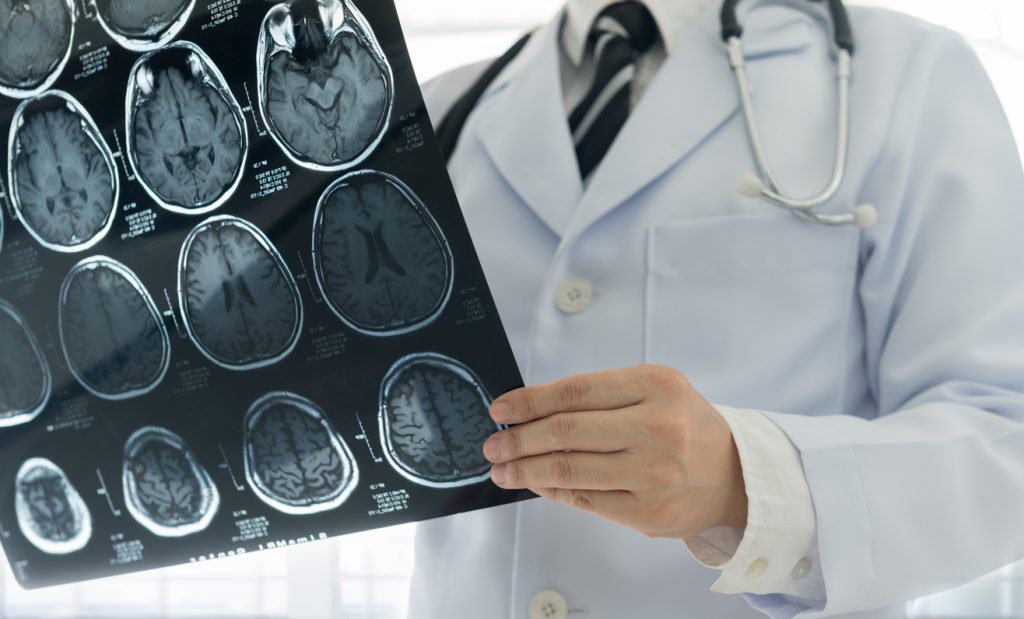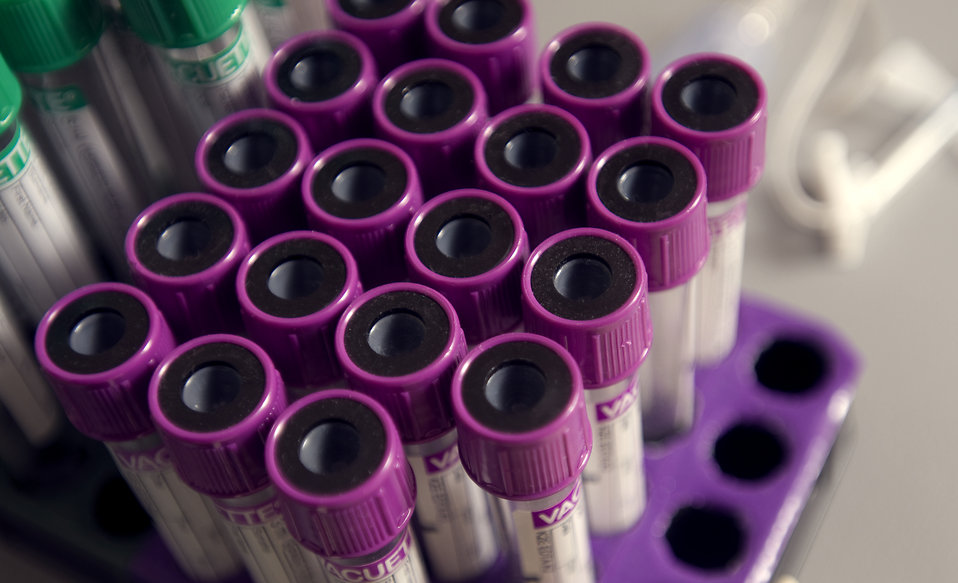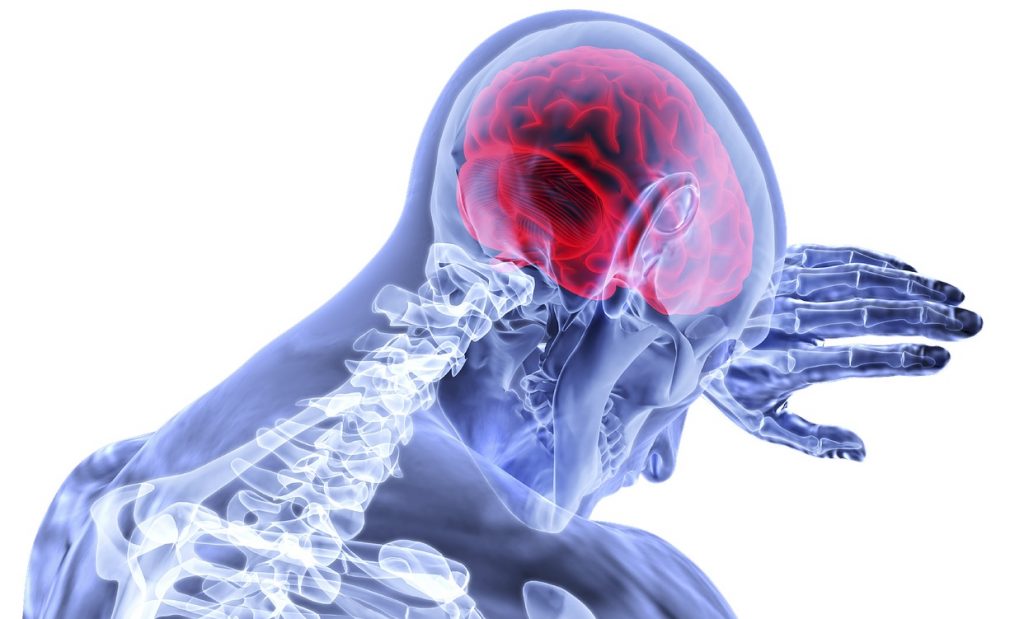Parkinson’s Disease is a progressive neurological condition that affects approximately 80,000 Australians. It is not known why a person develops Parkinson’s and the symptoms can develop slowly over a period of time.
Recognising the early signs and symptoms
Geoff recalls to when his symptoms first appeared, he said “It’s not until you are diagnosed and gain some understanding of Parkinson’s and its specific symptoms and its impact, that you can trace back to when symptoms first started to appear.”
“The symptoms that triggered my need to see a doctor to get some answers were dizziness and imbalance which had become a real issue within a month or so of me first noticing the problem. By the time I went to the doctor I had to concentrate to be able to walk in a straight line, it was like trying to walk around drunk 24/7.”
Other early symptoms such as stiffness and rigidity in the legs that progressed to constant cramping and chronic pain in the knees and ankles were initially dismissed by Geoff as just part of getting older or just part of life and not that big a concern. He would later learn that these too were signs of Parkinson’s.
Over the next 4 years, Geoff noticed that his symptoms slowly and progressively got worse and new symptoms presented themselves which now included, reduced motor skills particularly in the hands, becoming clumsy and dropping things as well as handwriting becoming increasingly illegible. “My issues with balance were now a real problem, I had to narrow my scope of vision to only a few meters to be able to focus on a straight path ahead to stay steady and not wander or fall. It was when I nearly stepped out in front of a car that I realised enough is enough, this isn’t right, I’m frustrated, I’m confused about what’s going on and I want some answers. So after 4 years I finally sought help from a neurologist.”
Testing for Parkinson’s Disease
From Geoff’s first visit with a neurologist it took 4 to 5 months before an official Parkinson’s diagnosis was made. Delays in this process were due to availability of times for the next appointment, time to book in for tests, get results back and to monitor symptoms for any changes. Interestingly, Geoff did not show some of the classic signs of Parkinson’s like hand tremor which would require more investigation to be able to identify Parkinson’s as the problem. He would later find out that a lack of a tremor is not uncommon with Young Onset Parkinson’s, which is the specific type of Parkinson’s that Geoff was diagnosed with.
“There is no specific test to identify Parkinson’s other than careful monitoring of body movement, reaction and function, which is still at best only an indicator. To be diagnosed with Parkinson’s, you must be tested for and to eliminate every other possible disease or illness which includes brain tumour or cancer, stroke, body chemistry.”
“So you undergo X-rays, MRI, various blood tests all the time hoping for an answer, praying that whatever they may find isn’t too serious, then frustrated and disappointed when the tests would come back all clear.”
During the testing phase Geoff recalls the built up frustration and emotion of the previous 4 years. “I got to the stage where I didn’t care anymore what was wrong with me, bring it on, just give me a name so that I could start my fight. When I was final told I had Parkinson’s, in that moment even though I didn’t have any understanding about Parkinson’s it was just total relief and I actually smiled.”
Get on top of your general health
Find and instantly book affordable GPs within Australia
Making the most of every day
After the initial feeling of relief from finally having a diagnosis Geoff started reflecting on “living with a disease with no cure, new symptoms will continue to arrive, it’s degenerative, its progression can’t be slowed, at best medication will provide some relief, over time the medication dose will increase then be replaced with different/stronger drugs which will also introduce their own problems and side effects which may also lead to considering DBS (Deep Brain Stimulation) or other treatments when the time comes.”
Realising that “my only way to win back hope was to hit back and strive to make the best out of a bad situation.” This lead to Geoff going online to find out as much information as he could and becoming a member of Parkinson’s Victoria. Friends and family were supportive and sent Geoff information on the benefits gained through exercise like cycling and intense training like boxing and strength training. Geoff’s youngest daughter even took him along to her personal trainer which Geoff states “showed quick results to help relieve some of my main symptoms.”
Keeping active is now a top priority for Geoff, who is now cycling to and from work daily and also at the weekend, averaging 350 – 400km per week. This is impressive considering 12 months ago Geoff had not ridden a bike for over 30 years! Geoff says that “a 40km or so ride will help to give me relief from cramps and stiffness for about a day. The cycling is a total commitment which for me means rain, hail or shine, except on the bad days when no matter what the Parkinson’s will win.” On top of the cycling Geoff also fits in 4 or 5 boxing/gym training sessions per week.
“People might think that I don’t have any really health issues as I’m doing a lot more physical exercise and actually fitter than many other people my age but the reality is Parkinson’s is a ticking clock. What I’m able to do today will soon get harder and harder and symptoms new and old will, over time, reduce, limit or exclude what I can do today. Someone once said to me ‘with Parkinson’s your best day was yesterday.’”
Geoff has not let Parkinson’s hold him back and says “Parkinson’s has also taught me to be more patient and accepting of myself and understanding it’s okay to have bad days, just don’t back out of the fight.” To help people understand what it feels like living with Parkinson’s, Geoff’s explains “it’s like fighting in a war that you know you can’t win, but along the way you do the best you can in the smaller battles to try and prolong the war, in a hope that in time you can change the outcome.”
More information
 |
Read more about Geoff’s experience with this disease, on Parkinson’s Disease: the impact on family and work life and Geoff’s advice for others. |
Reference
- Parkinson’s Victoria. What is Parkinson’s? (cited 24 August 2016). Available from: (URL Link)
All content and media on the HealthEngine Blog is created and published online for informational purposes only. It is not intended to be a substitute for professional medical advice and should not be relied on as health or personal advice. Always seek the guidance of your doctor or other qualified health professional with any questions you may have regarding your health or a medical condition. Never disregard the advice of a medical professional, or delay in seeking it because of something you have read on this Website. If you think you may have a medical emergency, call your doctor, go to the nearest hospital emergency department, or call the emergency services immediately.







